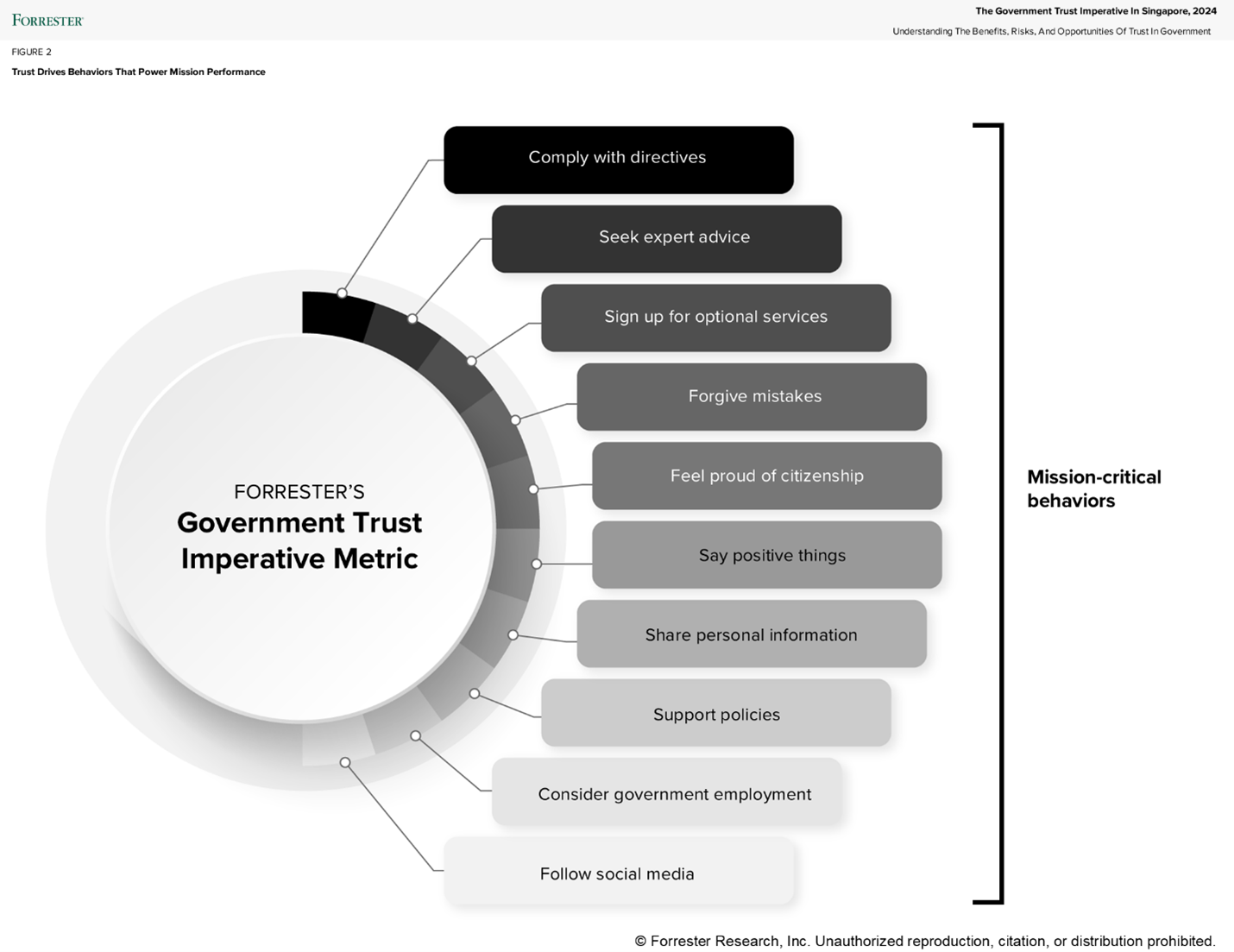The Public’s Trust Is the Cornerstone Of Success For Singapore’s Government
Trust is the currency of effective governance. In Singapore, where public institutions are known for their efficiency and integrity, maintaining high levels of trust is not just a legacy — it’s a strategic imperative. My recently published report, The Government Trust Imperative In Singapore, 2024, explores how trust shapes the public’s perceptions about the government in Singapore and leads to mission-critical behaviors.
Trust Is Not Abstract; It’s Actionable
Trust enables governments to act more decisively and deliver outcomes more effectively. Forrester’s research shows that trust in government directly influences how citizens engage with public services and respond to policies implemented by the government. When people trust their government, they are more likely to:
- Comply with regulations.
- Share personal data for better service delivery.
- Support new policies and reforms.
If You Want To Effectively Manage Trust, You Have To Measure It
To help public sector leaders measure and manage trust, Forrester has developed the Government Trust Imperative Metric (GTIM). The framework behind the GTIM evaluates trust across three levels of government — national, regional, and local — using a unique blueprint that connects:
- Seven universal trust levers (accountability, competence, consistency, dependability, empathy, integrity, and transparency) that lead to …
- Four perception outcomes, such as the belief that the government will fulfill the needs of the people and create a better future for them, that lead to …
- Ten mission-critical behaviors, such as the willingness to engage with government agencies, support policy initiatives, comply with directives, and seek advice (see graphic).

The Singapore Government’s Trust Level In 2024: Strong But Not Unshakable
Singapore’s government performs well on the GTIM, reflecting decades of consistent nation-building, effective governance, and public service excellence, but the report warns that trust is fragile. A single misstep, whether in data privacy, public service delivery, emergency response, or communication, can erode years of goodwill.
Using our trust data, we identified several areas where more focus is needed, such as:
- Digital trust. Citizens expect transparency and control over how their data is used.
- Public engagement. Two-way communication builds credibility and responsiveness.
- Policy alignment. Government actions must reflect shared societal values, which are rapidly changing given the current volatility and global instability.
What Should Public Sector Leaders In Singapore Do Next?
First, it is important to accept that trust is not just a soft metric — it’s a hard requirement for public sector success. In Singapore, where expectations are high and the pace of change is rapid, trust must be earned continuously. To strengthen and sustain trust, we recommend that government organizations in Singapore:
- Use trust data to prioritize initiatives and guide decisions.
- Design citizen-centric services that are inclusive, interactive, and respectful.
- Communicate with added purpose, clarity, and empathy.
